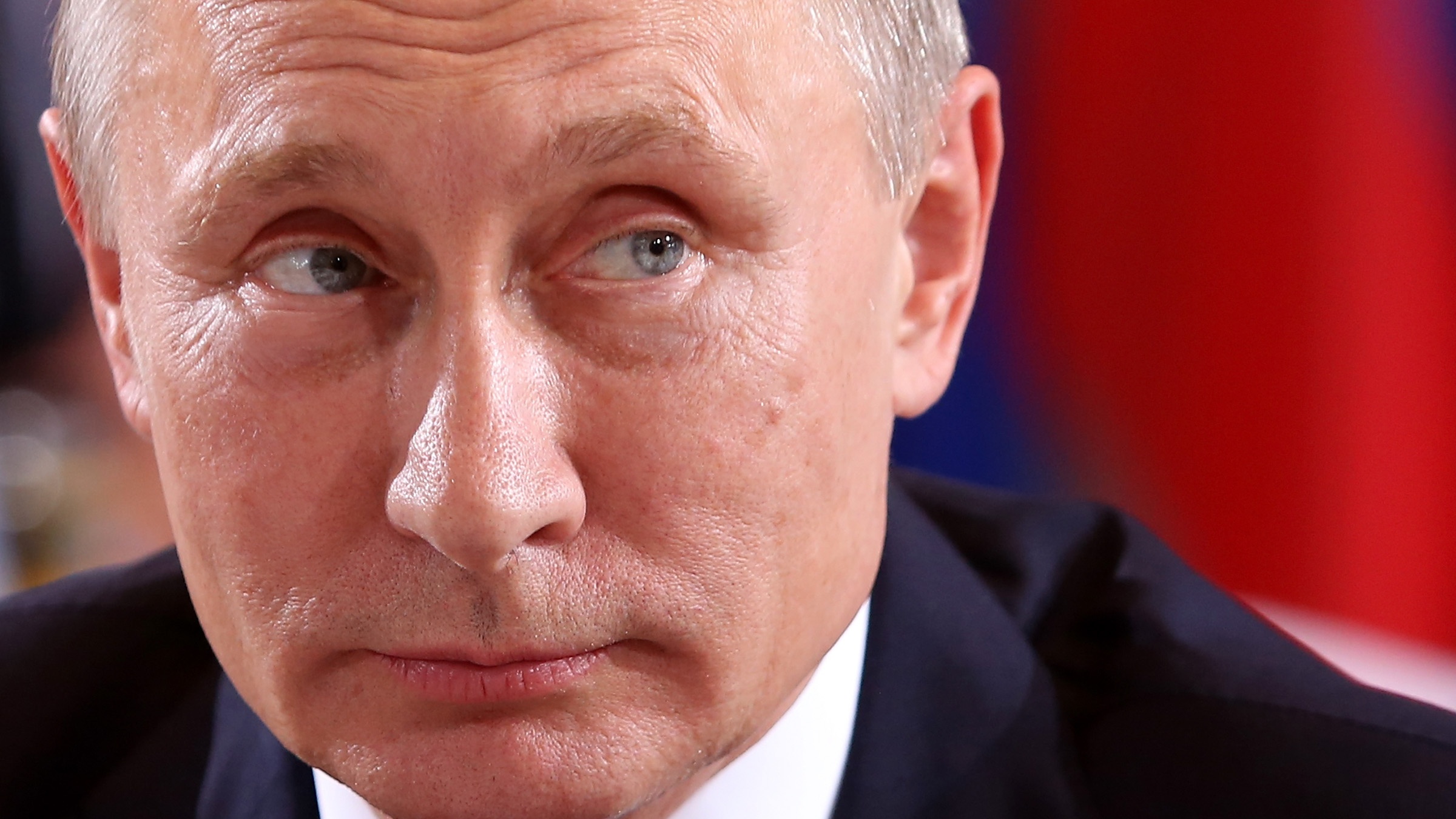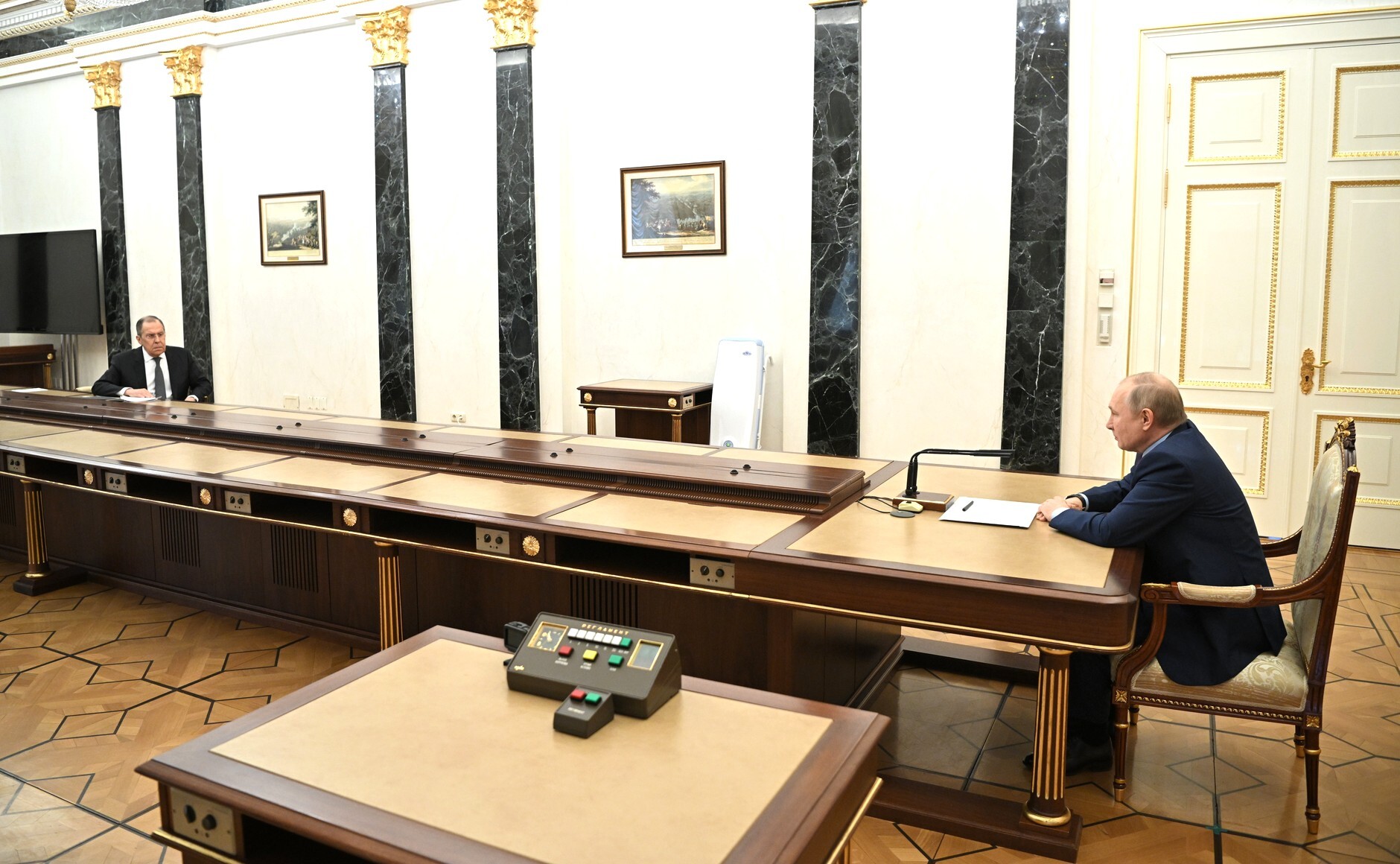‘Window of peace’ opens in the Russia-Ukraine stand-off
Joe Biden and Boris Johnson agree ‘not all hope lost’ after warnings Moscow could strike tomorrow

A free daily email with the biggest news stories of the day – and the best features from TheWeek.com
You are now subscribed
Your newsletter sign-up was successful
A last-minute diplomatic blitz has created a “crucial window” to avoid war in Ukraine, Boris Johnson and Joe Biden have said.
During a call yesterday evening, the two leaders said any incursion into Ukraine’s territory would trigger a “protracted crisis” for the Kremlin, including a “significant package” of sanctions causing “far reaching damage for both Russia and the world”.
Their intervention appeared to suggest “not all hope was lost”, The Telegraph said, just hours after Ukrainian President Volodymyr Zelensky “warned his people to prepare for a Russian invasion on Wednesday”.
The Week
Escape your echo chamber. Get the facts behind the news, plus analysis from multiple perspectives.

Sign up for The Week's Free Newsletters
From our morning news briefing to a weekly Good News Newsletter, get the best of The Week delivered directly to your inbox.
From our morning news briefing to a weekly Good News Newsletter, get the best of The Week delivered directly to your inbox.
‘Far from exhausted’
Johnson and Biden’s call followed what Politico’s London Playbook described as a “carefully choreographed” public meeting between Vladimir Putin and his “trusty” foreign minister, Sergey Lavrov.
The site’s chief Brussels correspondent David M. Herszenhorn said that the event was a “de-escalation dance” staged to signal “that there would be no imminent military strike on Ukraine and that they were prepared to continue diplomatic dialogue with the West”.
The meeting “might have been better held on stage at the Bolshoi Theatre” rather than within the Kremlin, he said. While “neither Putin nor Lavrov stand to win any acting awards”, the “global audience breathed a hefty sigh of relief nonetheless”.
Lavrov told Putin of his desire to continue negotiations over “security guarantees” from the West, telling the Russian president that “our possibilities are far from exhausted. I would propose continuing and intensifying them”. Putin simply replied: “Good.”
A free daily email with the biggest news stories of the day – and the best features from TheWeek.com
The “unusual bit of play-acting” came as Putin “continues to rattle sabre”, said The Guardian’s Moscow correspondent Andrew Roth. But it nonetheless was a “a rare nod towards de-escalation for Putin, who has explained little to the public about this crisis”.

“At stake is a potentially devastating conflict, sanctions and economic hardship”, he said, describing the impact of a war in Ukraine as “a verdict on the legacy of Putin”.
And while the “reality on the ground is not so encouraging”, talk of further negotiations from the Kremlin’s most senior officials have raised questions about “how far Putin is willing to go” to achieve his aims of stemming Nato expansionism.
Mixed signals
While Putin was discussing further negotiations with Lavrov, the US “closed its embassy in Kiev”, The Telegraph reported, “moving core staff to Lviv, almost 500km to the west”. Secretary of State Antony Blinken said the move came in response to a “dramatic acceleration in the buildup of Russian forces”.
Meanwhile, Ukraine’s president, who has so far attempted to quell suggestions of an imminent invasion, delivered what the paper described as a “bizarre video address to the nation”, warning “his people to prepare for a Russian invasion on Wednesday” and urging them “to greet it with a show of patriotism on the streets”.
Ukrainians should “hang national flags, put on blue and yellow ribbons, and show our unity to the whole world”, Zelensky said. A close aide later told reporters that the former actor and comedian was being “ironic”.
“The ambiguity over Russia’s intentions is forcing Ukraine and its Western partners to make hard decisions about what concessions to make to prevent an invasion,” The New York Times said.
Olaf Scholz will travel to Moscow for meetings with Putin today. “The Kremlin’s demonstrative public effort to ease tensions suggested that perhaps Putin was angling for a positive start with his new German counterpart,” said Politico.
Diplomatic overtures by Emmanuel Macron and Liz Truss appeared to create little room for further dialogue. But “Russia is keen to win approval from German regulators for the controversial Nord Stream 2 gas pipeline”, meaning Scholz may have greater leverage during his visit to the Kremlin.
And there are some signs of progress. “Open source data” shows “aircraft and helicopters deploying near the border and tanks and artillery leaving staging areas for positions where they would be poised for an attack”, said The Guardian.
The last 24-hours has seen the “tone of the Ukraine crisis shifts”, said the New York Times. At the very least, Moscow has “signalled an openness to talk more”.
-
 Health insurance: Premiums soar as ACA subsidies end
Health insurance: Premiums soar as ACA subsidies endFeature 1.4 million people have dropped coverage
-
 Anthropic: AI triggers the ‘SaaSpocalypse’
Anthropic: AI triggers the ‘SaaSpocalypse’Feature A grim reaper for software services?
-
 NIH director Bhattacharya tapped as acting CDC head
NIH director Bhattacharya tapped as acting CDC headSpeed Read Jay Bhattacharya, a critic of the CDC’s Covid-19 response, will now lead the Centers for Disease Control and Prevention
-
 Putin’s shadow war
Putin’s shadow warFeature The Kremlin is waging a campaign of sabotage and subversion against Ukraine’s allies in the West
-
 Alexei Navalny and Russia’s history of poisonings
Alexei Navalny and Russia’s history of poisoningsThe Explainer ‘Precise’ and ‘deniable’, the Kremlin’s use of poison to silence critics has become a ’geopolitical signature flourish’
-
 What happens now that the US-Russia nuclear treaty is expiring?
What happens now that the US-Russia nuclear treaty is expiring?TODAY’S BIG QUESTION Weapons experts worry that the end of the New START treaty marks the beginning of a 21st-century atomic arms race
-
 Epstein files topple law CEO, roil UK government
Epstein files topple law CEO, roil UK governmentSpeed Read Peter Mandelson, Britain’s former ambassador to the US, is caught up in the scandal
-
 Iran and US prepare to meet after skirmishes
Iran and US prepare to meet after skirmishesSpeed Read The incident comes amid heightened tensions in the Middle East
-
 Israel retrieves final hostage’s body from Gaza
Israel retrieves final hostage’s body from GazaSpeed Read The 24-year-old police officer was killed during the initial Hamas attack
-
 China’s Xi targets top general in growing purge
China’s Xi targets top general in growing purgeSpeed Read Zhang Youxia is being investigated over ‘grave violations’ of the law
-
 Ukraine, US and Russia: do rare trilateral talks mean peace is possible?
Ukraine, US and Russia: do rare trilateral talks mean peace is possible?Rush to meet signals potential agreement but scepticism of Russian motives remain